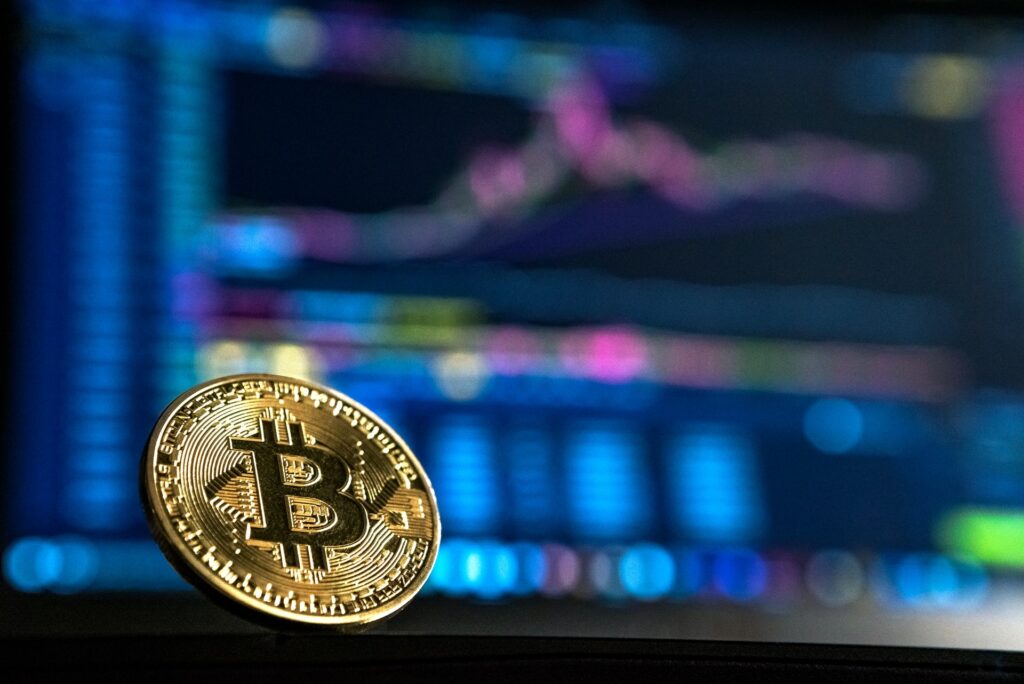
By Stanislaw Borawski (Head of the KGM Economic Institute) and Advait Lath (Analyst at KGM Economic Institute)
It is the talk of the town, and rightly so. Bitcoin has had an unprecedented rise in recent times, preceded by a rollercoaster ride, in the literal sense. In 2011, it rose 11,000%, only to undo 90% of those gains within months. In 2013, it breached the $1,000 mark, only to end at the $150 mark in 2015. In a repeat of events of previous years, Bitcoin’s value surged again in 2017, fueled by speculation and hordes of retail investors looking to make a quick buck. Hopes were dashed, when the then eight-year-old digital coin exhibited its volatile nature, reversing a peak of ~$20,000 in late 2017, and falling to a mere $4,000 by early 2019. Global hopes of Bitcoin becoming a mature asset, a stable currency, and an alternative to gold, were decimated by the cryptocurrency’s inherent volatility. Bitcoin hardly has the record of an accomplished safe haven, let alone having the constant stability of gold.
As the pandemic brought the world to a grinding halt in early 2020, Bitcoin was having a steady run by its standards. Reaching a 5-month peak of $10,000 in February, Bitcoin had rallied heavily in January, following the assassination of an Iranian General by the US armed forces. The ensuing expectations of geopolitical upheaval led to a speculative rally of Bitcoin. The optimism was ephemeral. A global lockdown in March sent the world into a spiral of uncertainty. With uncertainty becoming the norm of the day, a systematic de-risking was on the horizon. Investors scrambled to conventional safe havens, leaving global markets and cryptos teetering from the shock of the pandemic. On March 12, 2020, Bitcoin prices tanked 39%, hitting a local nadir of $3,850 (see Fig 1.). Bitcoin was far from becoming the safe haven that proponents strived for, especially when traditional ones like the US Treasury Bills and Gold rallied at its expense. Global policymakers swept into action, fearing a recession worse than in 2008, and began pumping trillions of dollars through quantitative easing and stimulus measures. Unsurprisingly, global markets responded positively, buoyed by the surge in liquidity. Bitcoin investors — fearing the worst initially — had their fears allayed, as the bull run on the markets percolated the digital currency markets as well. Research firm ByteTree recently found that blockchain data show a high number of Bitcoin purchases in the amount $600 — the same amount as the American stimulus checks sent out in the latest US coronavirus emergency aid package.

Asset prices rose significantly throughout 2020, with global markets rising, and Bitcoin hitting $8,600 by end of April. As Bitcoin continued its strong ascendancy, influential voices erred on the side of caution. However, market sentiments remained bullish on the oldest cryptocurrency, with retail investors flocking to get a piece of the action. By June, large investments have forayed into the Decentralized Finance industry by Wall Street firms (DeFi for short) bought cryptocurrencies into the mainstream. DeFi is a term that encapsulates blockchain-based financial applications that look to take financial intermediaries out of the transaction through smart contracts. Suddenly, Bitcoin was being talked up in institutional circles, with some suggestions of it being an emerging safe haven. Additionally, institutional adoption of Bitcoin was stoked by the perception of surging inflation caused by stimulus measures by central banks.
Large-scale institutional adoption by ‘whale’ entities (Fig. 2) has directed the market towards Bitcoin. Companies such as Paypal and Mastercard have allowed the trade of cryptocurrencies on their platforms; others such as MicroStrategy have upped their share of Bitcoin. MicroStrategy made the news recently when it issued convertible notes worth $600 Million to purchase Bitcoin, adding to their already substantial $3.5 Billion worth of holdings. Similarly, Tesla recently announced that they had purchased Bitcoin worth $1.5 Billion to “diversify and maximize returns on our cash that is not required to maintain adequate operating liquidity”, as well as looked to accept payments in the celebrated crypto. Bitcoin rose 10% on the reception of the news. Elon Musk (Tesla CEO), seemingly a vocal proponent of Bitcoin, recently clarified his stance on the potential of the alpha crypto:“When fiat currency has a negative real interest, only a fool wouldn’t look elsewhere,” adding that “Having some Bitcoin, which is simply a less dumb form of liquidity than cash, is adventurous enough for an S&P500 company.”

Bitcoin’s rally did not go unnoticed among the most important financial institutions. ECB’s President, Christine Lagarde, expressed her concern with the currencies’ unprecedented growth, calling for strict regulation measures. Newly appointed Treasury Secretary Janet Yellen is by far the biggest sceptic of BTC, fearing its tendency to be used for illicit transactions, its volatility and the risk of huge losses it can incur on many portfolios. Yellen’s point gains ground if we put things in perspective.
Regarding volatility, just last March at the outset of the pandemic, BTC notched a bearish turn from $10,000 to $5,000, soaring to over $58,000 in less than a year to then dipping back to $45,000 and, as of now, apparently stabilising its price at $50,000. Furthermore, the apprehension of bitcoin used for illegal purposes has certainly increased after the German police shut down marketplace site DarkMarket for trading more than €140 million worth cryptos and drugs. Some also fear Bitcoin’s surge and investors behaviour resonates with the 2007 housing bubble financed by poorly rated Mortgage-Backed Securities (MBS) and Collateralized Debt Obligations (CDO) that caused the most severe financial crisis since 1929.
Others, on the other hand, like Morgan Stanley’s Chief Global Strategist in Investment Management Ruchir Sharma, see cryptocurrencies’ success as a looming end for the almighty dollar’s reign as the world’s reserve currency. It is, after all, a decentralised unit of exchange, which means it is not controlled by any bank. Bitcoin is a people’s creation and deemed a truly democratic one, posing a serious challenge to the green bill. In 2019, America’s global debt has surpassed over 50 per cent of its yearly economic output, which, by IMF standards, indicates a high-risk of a full-blown economic crisis. Worldwide lockdown exacerbated the situation further, raising the US’s mounting debt by another 17%. For Sharma, these numbers are convincing enough to presuppose a looming end of the dollar reign as the global monetary back-up.
So, what makes bitcoin such an attractive investment? As mentioned before, it is first and foremost a decentralised currency, so no bank controls it. Adding cryptocurrency to a portfolio is generally seen as a good diversifier. JP Morgan has actively promoted investing 1% of holdings in crypto as a hedge against price fluctuations of more conventional assets. Many companies see genuine potential in Bitcoin despite its volatility in price. At the time of writing, MicroStrategy has just acquired an additional $15 million worth of Bitcoin after its price plunged exponentially to $45,710. Investment pioneers such as Paul Tudor Jones or Elon Musk also acquired large holdings of BTC, pushing it further up the currency scale. Not everyone shares the enthusiasm. BCA Research CEO Peter Berezin said “the expense and slowness of BTC transactions make it unsuitable as a medium of exchange” and to ‘“stay away” from the currency as it is supposed to face stricter government regulation. Microsoft founder, Bill Gates, expressed concern with how much energy mining bitcoin consumes and how badly it can affect the environment. Tesla has technically been flirting with hypocrisy after the purchase of $1.5 billion in BTC on the 8th of February — a day before Musk launched a $100 million programme to permanently remove carbon dioxide from the atmosphere and the oceans.

Despite its turbulent past filled with severe bearish turns and the huge sums lost as a result, there are signs that this rally is different than in previous years. Institutional adoption and mainstream recognition from regulators have made the technology impossible to ignore. Whether Bitcoin is a speculative asset or something more substantial, remains to be seen. One thing is certain. It is here to stay.
Exclusive Offer: Get £100 off your Summer Internship Experience at Amplify Trading by clicking here or using our unique discount code at the checkout: MSAmplifySummer2021. Participants graduate from the course with a Diploma from the London Institute of Banking & Finance. For more information about the course, click here.
Links referred to and suggested further reading:
3) https://www.coindesk.com/what-is-defi
4) https://www.coindesk.com/bitcoin-prices-in-2020-heres-what-happened
8) https://www.coindesk.com/first-mover-bitcoin-defi-crypto-markets-capitalism
9) https://finshots.in/archive/why-is-bitcoin-rallying/
11) https://www.blockchain.com/charts/market-cap
13) https://www.bridgewater.com/research-and-insights/ray-dalio-what-i-think-of-bitcoin
14) Elon Musk launches $100 million carbon capture competition (dezeen.com)
15) Gates Elaborates On Why He’s Not Bullish With Bitcoin – Crypto Daily™
16) MicroStrategy purchases $15 million more Bitcoin – Crypto Daily™
17) JP Morgan urges investors try Bitcoin for at least 1% – Crypto Daily™
18) Bitcoin’s Long-Term Value Doubted Due to ESG, Tighter Rules – Bloomberg
19) Bitcoin faces regulatory scrutiny after rapid rally | Financial Times
Will bitcoin end the dollar’s reign? | Financial Times (ft.com)
20) Bitcoin has ambitions for gold’s role | Financial Times (ft.com)
21) The Economist explains – How does Bitcoin work? | The Economist explains | The Economist
22) Not so novel – Bitcoin is fiat money, too | Free exchange | The Economist
24) Treasury Secretary Janet Yellen Sceptical of Bitcoin (natlawreview.com)

King's Global Markets - KGM
King’s Global Markets is a community of students dedicated to the advanced study and application of global financial markets, economics and global business.